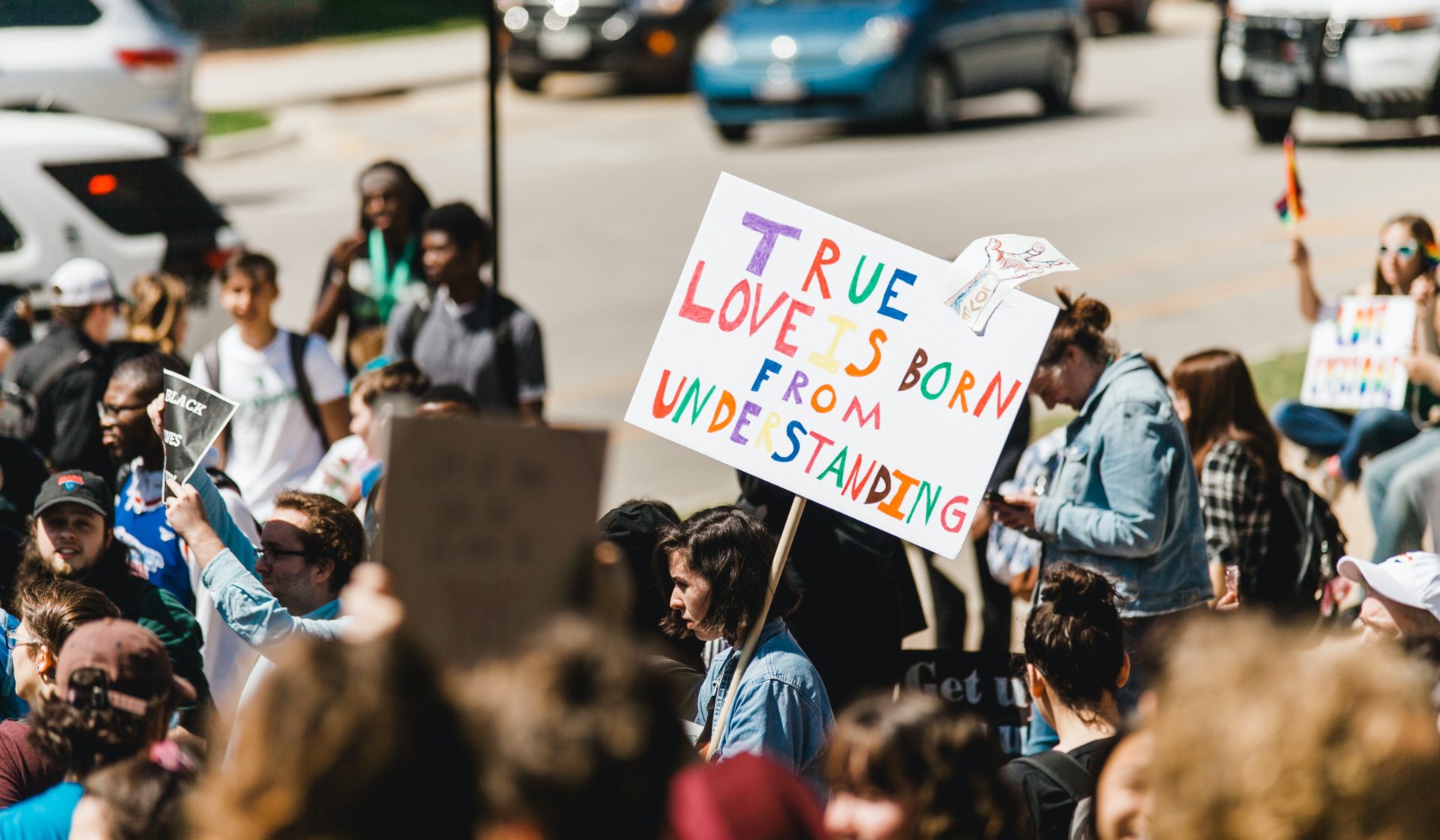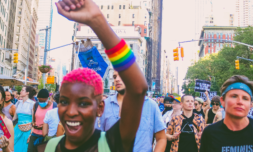Stonewall’s latest report has uncovered a ‘profound sea-change in the identity and orientation’ of young Brits, more of whom than ever before now consider themselves to be part of the LGBTQ+ community.
According to new research conducted by Stonewall and polling company Ipsos Mori, only half of Gen Zers in the UK say they are exclusively attracted to the opposite sex, compared with over three-quarters of baby boomers.
The study, which asked around 6,000 16 to 75-year-olds questions about their gender identity and sexual orientation, reveals stark generational differences regarding sexuality, with more young people identifying as lesbian, gay, bisexual, and transgender than other age cohorts.
For example, for Gen Z respondents, only 71 per cent consider themselves straight and 14 per cent pansexual.
In contrast, 91 per cent of baby boomers identify as straight, as well as 87 per cent of Gen X and 82 per cent of Millennials.
Hinting towards a growing ‘Rainbow Nation’ (as referred to by PinkNews), the data confirms what Stonewall has been predicting for some time now.
NEW 🚨 More and more people in our #RainbowBritain now identify as LGBTQ+ or have same-sex attraction!
This groundbreaking report, based on data from @IpsosUK, shows that we are entering a new era of openness and inclusion 🌈
Read the full report 🧵⬇️https://t.co/kbsQ1d2NCJ
— Stonewall (@stonewalluk) October 6, 2022
That Gen Z is significantly more sexually diverse than its predecessors, all thanks to a steady increase in social acceptance and visibility of LGBTQ+ people in recent decades.
‘This new era of openness in Britain has led to an environment where more people are free to be themselves and are more confident in their sexual and gender identity,’ says the charity’s CEO, Nancy Kelley.
‘This ground-breaking new report shows that our lives as LGBTQ+ people are more visible and connected to our friends and families.’
As Kelley explains, the finding indicates a ‘profound sea-change’ in our identity and orientation as a country.
This can be attributed to how young people are free from old constraints.
Gen Z is GAY.
No, really!
Only half of Gen Z is exclusively attracted to the opposite sex according to a new Stonewall/Ipsos Survey.
And this doesn't surprise me one bit – LGBTQ people are way more common than people think! pic.twitter.com/QPkDBafQoz
— Erin Reed (@ErinInTheMorn) October 6, 2022
Essentially, while baby boomers grew up during an era when homosexuality was against the law and same-sex marriage did not exist, Gen Z has faced far fewer external pressures to conform and more encouragement to come out.
‘The idea of a ‘culture war’ often referenced in parts of the media is a misnomer being propagated by a narrow section of society, out of touch with – and unwilling to accept – the reality of the UK’s diverse, inter-connected communities,’ adds Kelley.
‘It is also amazing to see that younger generations are no longer afraid to be themselves and have supportive families and social environments to thrive.’
However, despite how positive this is, Kelley stresses the importance of doing more to help LGBTQ+ individuals feel safe, particularly amid the 56 per cent surge in hate crimes targeting transgender people across England and Wales.
In the meantime, Stonewall hopes that more people will be empowered by the promising results to move away from categorical binary definitions and be themselves.

















